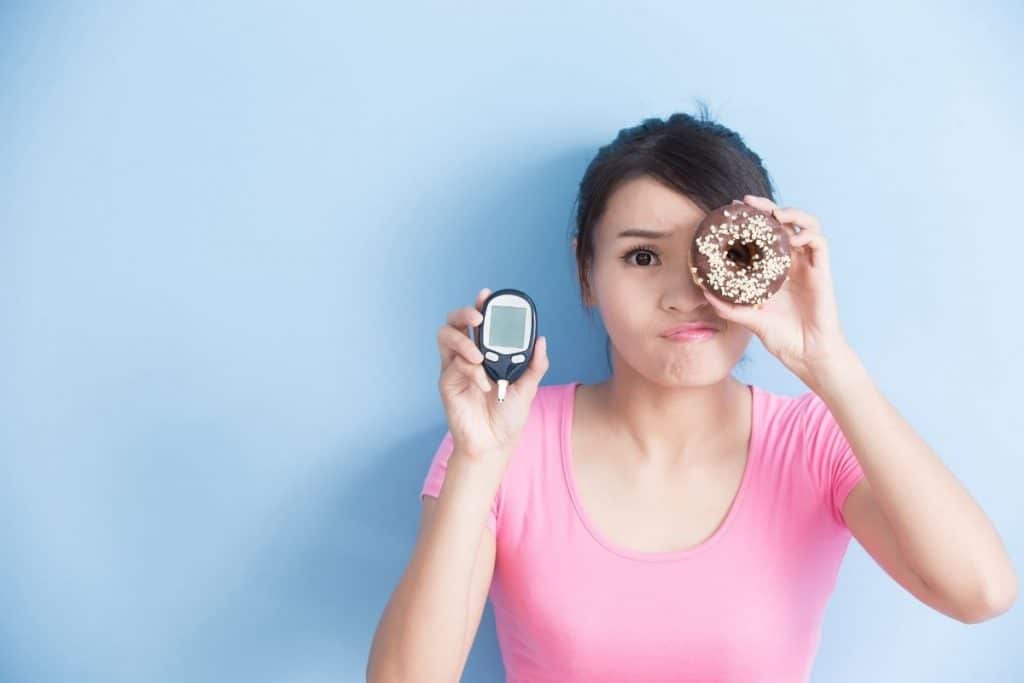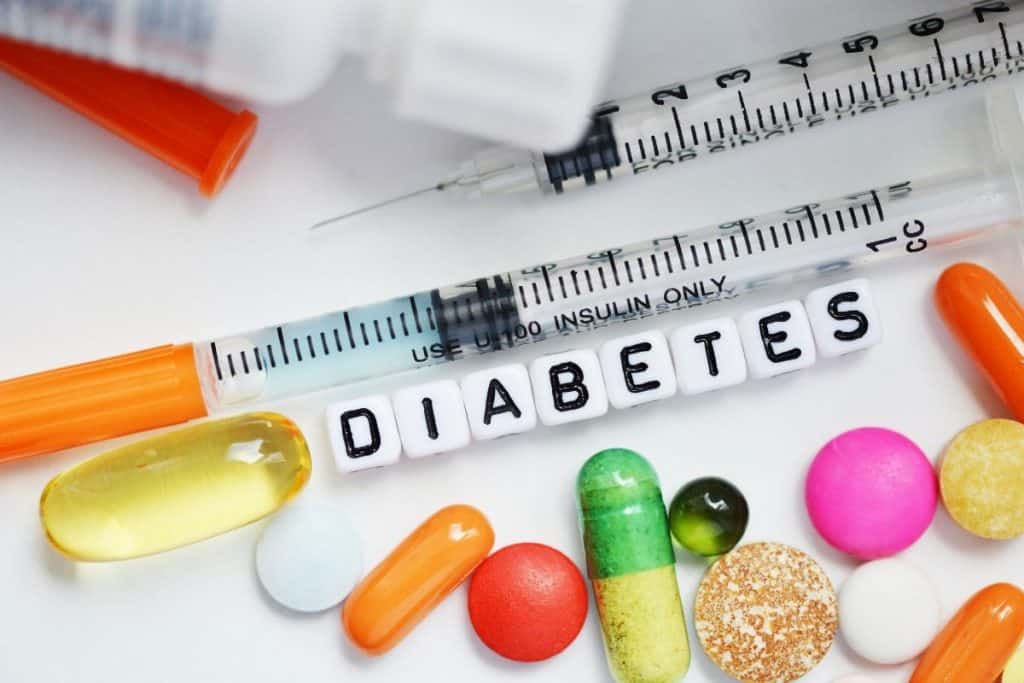
There’s a reciprocal connection between sleep and sugar, which means to interject that diabetes affects sleep. The risk of diabetes is a serious health concern arising from the lack of sleep.
Scientists found that it can influence metabolism, circadian rhythms, hormones, appetite and feeding, and the regulation of blood sugar and insulin in the body.

About diabetes
Diabetes is an illness that affects how the body absorbs glucose or blood sugar. The accumulation of blood sugars can raise the likelihood of risky conditions such as stroke, heart failure, obesity, and hormonal imbalance. There are different kinds of diabetes which can originate congenially or from a poor, unhealthy lifestyle.
According to the Australian Institute of Health and Welfare, an estimate of 1 million Australians has Type 2 Diabetes and accounted for 17,000 deaths in 2017.
Types of diabetes
There are three common types of diabetes with distinctive symptoms, causes, and treatments.
Type 1 Diabetes
This type of diabetes is characterized by the failure of the body to produce insulin. Individuals who are insulin-dependent have to take insulin medications every day. Type 1 Diabetes, an autoimmune disease, is also known as juvenile diabetes.
Type 2 Diabetes
Type 2 Diabetes occurs when the body produces insulin, but the cells don’t respond or react to it. When the body becomes resistant to insulin, sugar can build up in the blood which can cause obesity. Common causes for Type 2 Diabetes are often from lifestyle changes and negative habits.
Gestational diabetes
Some women may experience high blood sugar during pregnancy which is caused by insulin-blocking hormones during her gestation period. Not all women get to experience and those who do typically resolve n their own after giving birth.

How diabetes affects sleep
Restorative sleep is critical to repair the worn-out body. It also helps to regulate one’s metabolism and hormonal productions, especially with the body’s appetite signals – ghrelin and leptin. Ghrelin is a hormone responsible for increasing your appetite, while, leptin signals food satiety.
Sleep deprivation mixes up the signal and increases one’s ghrelin production while lowering the leptin hormone. That’s why people tend to eat more when they’re sleep-deprived. Weight gain and obesity is one factor many people observe when not sleeping properly.
These following risks show how diabetes affects sleep.
Prevalence of obstructive sleep apnea (OSA)
Sleep apnea is a common medical condition that occurs when a person’s breathing is obstructed during sleep. It happens when the muscles at the back of the throat relax and close the airway when you breathe. When your body sense you can’t breathe, it’ll jolt you awake so you can reopen your airways.
People with OSA are often overweight and have an underlying link with diabetes. What’s more, OSA can trigger hypertension which affects sleep as it induces insomnia. In the long run, it can cause cardiovascular diseases.
Occurrence of restless leg syndrome or diabetic neuropathy
People suffering from the condition have itchy sensations and an overwhelming urge to move their legs. It can be: itchy, creepy feeling, with pins and needles; an involuntary urge to move the legs; or, leg twisting and jerking.
Diabetes affects sleep in the possibility of RLS or diabetic neuropathy. That’s because the nerves get damaged due to poor body circulation, inability to regulate metabolism, and weak muscles.
Gets nocturia or frequent urination
People with high blood sugar feel the need to urinate often at night – a condition known as nocturnia. Nocturia is a sleep loss problem occurring among older adults. Waking up once or twice might be considered normal, but more than that is associated with nocturia.
It’s a lot common as we age, as our bodies produce less ADH and our organs hinder their everyday functions better. But diabetes can trigger nocturia as well.
Ended up dehydrated
A lot of people raised nighttime dehydration can disturb your shuteye by hosting a lot of sleep problems. The more you are dehydrated, the more you lose electrolytes which can make your muscles cramp at night. Electrolytes are nutrients such as sodium, calcium, and potassium found in your body fluids.
Low H2O pressure leads to high blood pressure because your blood vessels pump harder. It can also lead to trouble in falling asleep due to insomnia. Extreme thirst can make you feel restless at night and get up to eat or pace around the room. Not only this disturb your sleep, but it can cause stress and weight gain on your part as well.
Studies also found that the lack of sleep has a direct impact on metabolism which can cause diabetes if one does not take a healthy lifestyle change. Diabetes affects sleep – but, the lack of sleep can increase the risk of diabetes as well.

Tips for a healthier lifestyle
Try taking a lipid profile or serum test to determine your blood sugar level. You should also see a doctor if he or she can prescribe medications and lifestyle changes to keep your blood sugar at bay. When diabetes affects sleep, you can lessen the condition by instilling a healthier lifestyle.
Exercise regularly
Physical activity can help you lose weight and regulate much of the body’s internal rhythm for a night of restorative sleep. Exercise burns your calories and keeps your blood sugar at a healthy level. It contributes to weight maintenance and fat loss to ensure you with a healthy weight.
Regulate your eating habits
Overeating is one major cause of type 2 diabetes. This brings in higher blood sugar in the body, and thus, you gain weight. Moreover, overeating can lead to problems such as sleeping hot, sleep apnea, or acid reflux – and, of course, diabetes.
Practice good sleeping habits
You can practice good sleeping habits by doing any of the following:
- Stick to a regular sleep-wake schedule
- Invest in good pillows and mattresses
- Lower the lights when you’re about to sleep
- Put down electronics 30 minutes before sleeping
- Practice bedtime routine like reading, listening to music, or drinking hot milk
- Prop a pillow on your lower back or legs to support you
Purchase quality bed products
If you want to be more comfortable at night, why not invest in quality products at Solace Sleep for a good night’s rest. We have a collection of mattresses, bed frames, and adjustable beds that will improve sleep quality and lowering some complications brought by diabetes.
Instill bedtime routines
Bedtime routines are pre-sleep habits that you can instill to help you relax and prepare for sleep. Relaxation techniques include taking a hot bath, reading a book, meditating, drinking tea, or listening to soft music.



